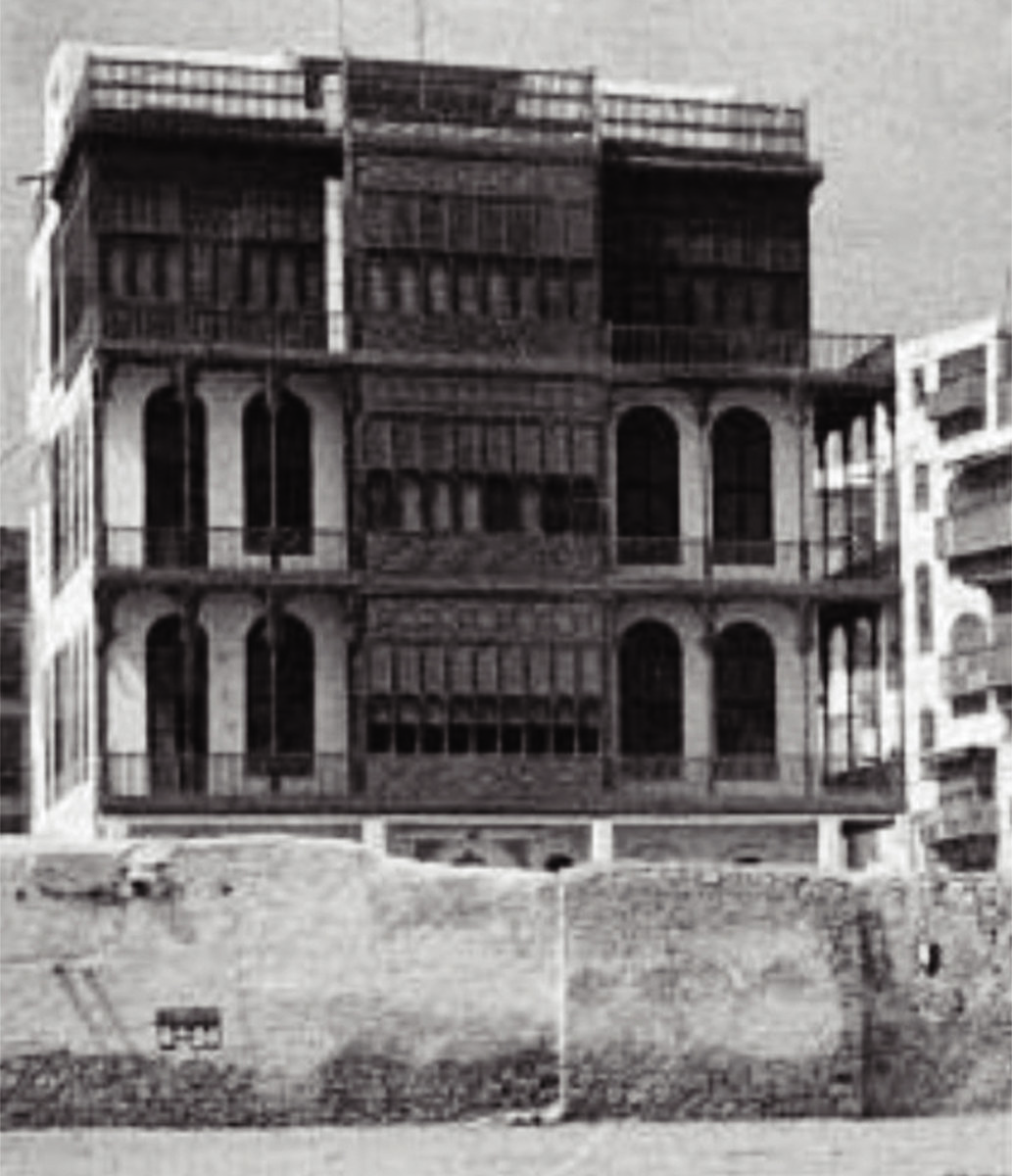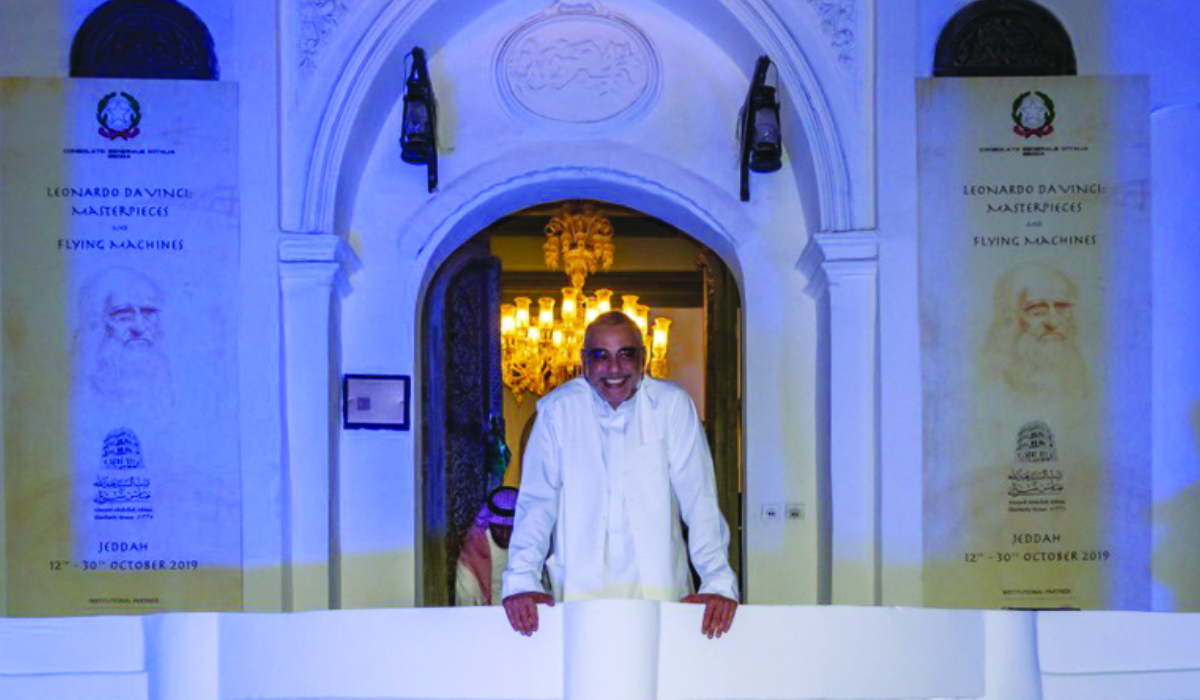JEDDAH: One of the oldest structures in Jeddah’s historic Al-Balad district, the 19th-century Sharbatly House, has been transformed into a center hosting cultural, literary, artistic, scientific and intellectual events.
The renovations were carried out by Abdullah Sharbatly’s grandson, businessman Seifalah Sharbatly, who sought to modernize the building while preserving its character, foundation and interiors, as well as its original brick walls. New materials exported from countries including Sweden and Egypt comply with strict heritage preservation standards.

Seifalah Sharbatly shared that the restoration of Sharbatly House took place before Al-Balad became a UNESCO World Heritage Site. (Supplied)
Sharbatly told Arab News that every tile placed in the historic building was a link to its heritage. “You will find written on the back of the tile, ‘Made in Hejjaz’,” he said. The process of searching for antique tiles of the same shape took a long time, he added.
He put his heart and soul into every detail of the project, aiming not just to restore the building but revitalize it and turn it into a cultural hub.
HIGHLIGHT
• Many historic houses in the area were abandoned until the Ministry of Culture led the project to revive Al-Balad and transform its heritage into tourist attractions.
“The idea of creating a cultural house came from my passion for art, culture and poetry, and from my keenness to preserve the historic building left by our grandfather,” he said. “The idea began in 2013 when I visited our house, abandoned and collapsing in some parts, including ceilings, and covered in dust.”

The Ministry of Culture led the project to revitalize Al-Balad and turn its heritage into tourist attractions. (Supplied)
Soon after he approached his father and made a case for extensive renovations that would bring the property into the 21st century, which was agreed.
The work took a long time, said Sharbatly: “I thought it would take me around three years to complete the renovation but it took me seven years.”
The restoration took place before Al-Balad became a UNESCO World Heritage Site.
The idea of creating a cultural house came from my passion for art, culture and poetry, and from my keenness to preserve the historic building left by our grandfather.
Seifalah Sharbatly, Saudi businessman
“We were ahead of the preservation of the area’s heritage program,” added Sharbatly.
The four-story building, located on Al-Bayaa Square, was built in the late 19th century by Al-Sharif Abdulilah Mihanna Al-Abdaly. It was later sold to Abdullah Sharbatly and became the family home.
In its time it served as the headquarters of the Egyptian mission in Saudi Arabia, and for some 30 years was a vital touchpoint for Egyptian traders and entrepreneurs doing business in the Kingdom upon arrival through Jeddah’s sea ports.
“After I restored the house to the best of my ability, I didn’t want the house to be like other historic houses in the area, of which most (became) museums,” Sharbatly said. “So I seriously thought to make it different by paying attention to it and introducing ideas that would restore to it the sparkle that it had almost lost over the years.”
Sharbatly said he wanted the house to promote Saudi cultural identity.
“Our vision for the cultural house is (for it) to become a home to all artists — from professionals to amateurs, from established to emerging, and from traditional to contemporary,” he said.
Many historic houses in the area were abandoned until the Ministry of Culture led the project to revive Al-Balad and transform its heritage into tourist attractions.
Speaking about the efforts, Sharbatly said: “The ministry’s initiative is not just to create a tourist destination but also to bring our generation and their children back to what was once the beating heart of Jeddah.
“It was a great initiative to revive the district and restore it to its glory days, recapturing its charm and significance as a cultural destination.”
When the Ministry of Culture took control of the area, Sharbatly sat with officials to present his vision and long-term plan.
Then he moved ahead with a new, more ambitious project: “The house has become one of the most popular cultural spots,” he added.
The Sharbatly House project has played a pivotal role in promoting awareness of the Kingdom’s cultural heritage among both local and international visitors. To continue his passion for promoting culture, the graduate student from the American University in Cairo hopes to expand his dream by creating a huge cultural area in Al-Balad.
“I hope one day to (make) my house as big as (the) El-Sawy Culture Wheel, which is considered one of the most important cultural venues in Egypt,” said Sharbatly.
He also revealed a new mission: “Right now I am in negotiation with the Saudi officials to save my other grandfather’s house, which is located in Al-Ruwais area.
“Unfortunately, the house is scheduled to be demolished along with the rest of buildings. I am trying to convince them not to demolish (it) because it is a historic house and valuable and could be preserved and promoted.”






























